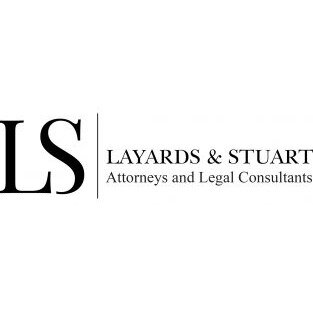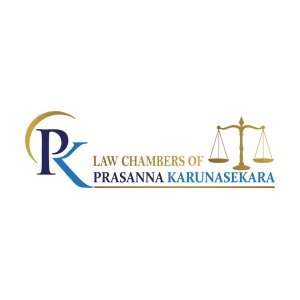Best Landlord & Tenant Lawyers in Sri Lanka
Share your needs with us, get contacted by law firms.
Free. Takes 2 min.
Free Guide to Hiring a Real Estate Lawyer
Or refine your search by selecting a city:
List of the best lawyers in Sri Lanka
About Landlord & Tenant Law in Sri Lanka
Landlord and tenant law in Sri Lanka is primarily governed by the Rent Act No. 7 of 1972, which aims to regulate the relationship between landlords and tenants, particularly in regard to rental agreements and property occupancy. The law seeks to protect the rights of tenants while ensuring that landlords can reasonably manage their properties. The regulations cover a wide array of issues including rent control, eviction proceedings, lease agreements, and maintenance responsibilities. Understanding these legal frameworks is crucial for both landlords and tenants to navigate their rights and responsibilities effectively.
Why You May Need a Lawyer
Engaging a lawyer can be necessary in several common situations involving landlord and tenant matters:
1. Disputes Over Rent: Legal intervention might be required when there is disagreement regarding rent amounts or late payments.
2. Eviction Processes: Whether a landlord wishes to evict a tenant, or a tenant feels wrongfully evicted, legal guidance is often essential.
3. Lease Agreement Drafting and Interpretation: Lawyers can draft clear legal documents and interpret complex clauses to avoid future disputes.
4. Property Damage and Maintenance Issues: Disputes often arise concerning responsibility for maintenance and repair costs.
5. Security Deposits: Legal advice may be needed concerning the lawful withholding or return of security deposits.
Local Laws Overview
Key aspects of landlord and tenant law in Sri Lanka include:
Rent Control: Rent control applies to certain properties, limiting the amount a landlord can charge and conditions under which rent can be increased.
Termination of Tenancy: Legal procedures for terminating tenancies vary based on the reason for eviction, including unpaid rent or breach of contract.
Lease Agreements: Written agreements should clearly detail terms, including duration, rent, and obligations for both parties.
Maintenance Responsibilities: Landlords must ensure properties are fit for occupation and perform necessary repairs, while tenants are expected to prevent any undue damage.
Frequently Asked Questions
What is the maximum rent increase allowed under Sri Lankan law?
The maximum rent increase is typically regulated by the Rent Act, and any increase usually requires an assessment and approval if the premises fall under rent control.
Can a landlord evict a tenant without notice?
No, legal process must be followed, which typically includes providing adequate notice. Summary eviction is not permissible without adhering to legal procedures.
What should be included in a rental agreement?
A valid rental agreement should include terms on rent, lease duration, both parties' obligations, payment schedules, and dispute resolution methods.
How is a security deposit handled?
Security deposits are typically held by the landlord and should be returned at the end of the tenancy, unless there is damage or unpaid rent.
Who is responsible for repairs?
Generally, landlords are responsible for structural repairs, whereas tenants should cover damage caused by negligence or misuse.
Are oral agreements legally binding?
Oral agreements can be legally binding, but they are difficult to enforce. Therefore, written agreements are highly recommended.
How can disputes be resolved?
Disputes can be resolved through negotiation, mediation, or by taking legal action if necessary.
Does the Rent Act apply to commercial properties?
The Rent Act primarily governs residential properties, but certain provisions may apply to commercial properties depending on the context.
What happens if a tenant breaches the lease agreement?
The landlord may have grounds to terminate the tenancy or seek restitution through legal avenues.
Is it legal to sublet a rental property?
Subletting is typically only allowed if the lease agreement explicitly permits it and usually requires the landlord’s consent.
Additional Resources
For further assistance, consider reaching out to the following resources:
Legal Aid Commission of Sri Lanka: Offers free legal services to those unable to afford legal representation.
Consumer Affairs Authority: Can assist with issues related to consumer rights and disputes.
Sri Lanka Apartment Management and Valuation Institute: Provides professional guidance in property management and valuation.
Local Municipal Councils: Often provide helpful information regarding property legislation and rights.
Next Steps
If you need legal assistance with landlord and tenant matters, consider taking the following steps:
1. Gather Documentation: Collect all relevant documents such as lease agreements, rent receipts, and correspondence pertaining to the issue.
2. Consult a Lawyer: Seek advice from a lawyer specializing in landlord and tenant law to understand your rights and options.
3. Explore Mediation: Consider mediation as a cost-effective way to resolve disputes before pursuing formal legal action.
4. File a Complaint: If mediation fails, your lawyer may suggest filing a complaint with a relevant legal body.
Lawzana helps you find the best lawyers and law firms in Sri Lanka through a curated and pre-screened list of qualified legal professionals. Our platform offers rankings and detailed profiles of attorneys and law firms, allowing you to compare based on practice areas, including Landlord & Tenant, experience, and client feedback.
Each profile includes a description of the firm's areas of practice, client reviews, team members and partners, year of establishment, spoken languages, office locations, contact information, social media presence, and any published articles or resources. Most firms on our platform speak English and are experienced in both local and international legal matters.
Get a quote from top-rated law firms in Sri Lanka — quickly, securely, and without unnecessary hassle.
Disclaimer:
The information provided on this page is for general informational purposes only and does not constitute legal advice. While we strive to ensure the accuracy and relevance of the content, legal information may change over time, and interpretations of the law can vary. You should always consult with a qualified legal professional for advice specific to your situation.
We disclaim all liability for actions taken or not taken based on the content of this page. If you believe any information is incorrect or outdated, please contact us, and we will review and update it where appropriate.
Browse landlord & tenant law firms by city in Sri Lanka
Refine your search by selecting a city.

















